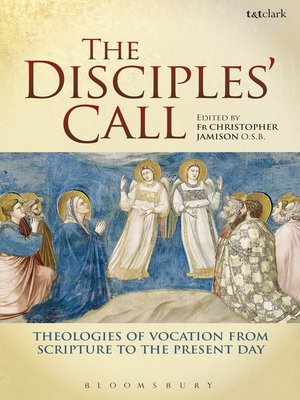The Disciples' Call
ebook ∣ Theologies of Vocation from Scripture to the Present Day
By Christopher Jamison, OSB

Sign up to save your library
With an OverDrive account, you can save your favorite libraries for at-a-glance information about availability. Find out more about OverDrive accounts.
Find this title in Libby, the library reading app by OverDrive.



Search for a digital library with this title
Title found at these libraries:
| Library Name | Distance |
|---|---|
| Loading... |
There is currently no shared language of vocation among Catholics in the developed, post-modern world of Europe and North America. The decline in practice of the faith and a weakened understanding of Church teaching has led to reduced numbers of people entering into marriage, religious life and priesthood.
Uniquely, this book traces the development of vocation from scriptural, patristic roots through Thomism and the Reformation to engage with the modern vocational crisis. How are these two approaches compatible? The universal call to holiness is expressed in Lumen Gentium has been read by some as meaning that any vocational choice has the same value as any other such choice; is some sense of a higher calling part of the Catholic theology of vocation or not? Some claim that the single life is a vocation on a par with marriage and religious life; what kind of a theology of vocation leads to that conclusion? And is the secular use of the word 'vocation' to describe certain profession helpful or misleading in the context of Catholic theology?
Uniquely, this book traces the development of vocation from scriptural, patristic roots through Thomism and the Reformation to engage with the modern vocational crisis. How are these two approaches compatible? The universal call to holiness is expressed in Lumen Gentium has been read by some as meaning that any vocational choice has the same value as any other such choice; is some sense of a higher calling part of the Catholic theology of vocation or not? Some claim that the single life is a vocation on a par with marriage and religious life; what kind of a theology of vocation leads to that conclusion? And is the secular use of the word 'vocation' to describe certain profession helpful or misleading in the context of Catholic theology?







